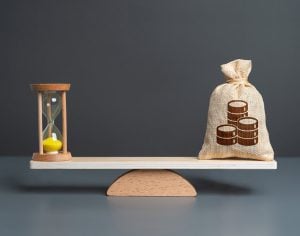We have seen decades of pressure on pricing especially in the consumer goods markets. The challenges to maintain margin will only increase as the cost of goods and manufacturing rise due to the pandemic and Brexit complications. Low prices in supermarkets are good for consumers and the retailers, but not good for brands as they inch towards commoditisation. For example, what does it take to grow, process and retail a whole chicken at Tesco for just £2.66? Everything must be stripped back to the minimum to achieve this price and that can’t be good for farmers, or for the chickens.
Amazon and Alibaba are having the same effect across multiple categories as e-commerce provides staggeringly low costs, where it is hard to see where any profit can be made. It is impossible to compete with ultra-low cost manufacture from the far east if we want to maintain standards and good living conditions for our workforces. The low-cost model of e-commerce is also putting further pressure on bricks and mortar businesses who are finding it impossible to compete. This is evident walking down many high streets as shop after shop closes and gets boarded up.
I recently talked to a senior VP at a large FMCG company who said giant retailers such as Walgreens are demanding innovative new products on the shelf at the same time insisting that prices be kept at rock bottom. In another conversation with a manufacturer of car accessories they noted that, on one hand, US retailers were setting new environmental standards from a corporate level yet the buyers on the ground were insisting on more plastic in their packaging to improve premium perceptions. With this model of working, there is no room for manoeuvre.
Is the downward spiral ever going to end? Is this all bad news? Not necessarily.
We are nearing the end of the old retail models we know. The retail channels we are accustomed to are changing and multiplying. Likewise, our relationships with brands are changing too. Moving to a circular economy cannot be done by tweaking the old infrastructure; it needs new ones. Advancing technology facilitates new relationships and opportunities. Most importantly, our values are changing and, in turn, where we see value is changing too. If brands can understand where this trend is taking us, we can find new value in our offers and, as a result, increase our margin.
Premium products are traditionally related to rarity and exclusivity. For example, a precious diamond, a Saville Row suit that takes many hours to make by hand, a perfume blended by a master perfumier from exotic ingredients, a fine old Burgundy that has spent decades in a cellar. Why would anyone spend money on such things? Because it says something about the buyer ‘ rich, distinguished, ‘special’, elite and arguably perceived as ‘better’ than everyone else. But what have these rarefied products got to do with our weekly grocery shop? They are an aspiration and so the codes of their trappings have cascaded down to the everyman ‘ from the gold foil on an instant coffee jar to the fake diamonds on a pair of party shoes.
This is still relevant in many societies but there is a change in others. Back in late nineties the elite of Hollywood left their Bentleys in the garage and bought the new Toyota Prius ‘ the first real hybrid car. Air pollution is a real problem in California and the elite wanted to be seen doing something about this ‘ they wanted to be loved and adored. Philanthropy is nothing new, but Elon Musk’s $6bn donation to charity is a huge statement but is no match to the Gates’s contributions of $15bn. This new elite represent the vanguard of a new value projection that is more democratic, inclusive and socially responsible.
This is trickling down to the masses. Moet Hennessy, who were seeing a change in social drinking, moved away from solo sipping of fine cognacs to sharing magnum bottles at parties; a move from hording success to sharing success. Likewise, we recently developed a lightweight pulp bottle for a premium vodka brand to dramatically reduce their carbon footprint in transportation. The bottle design embraced the new material and looked very cool but, on first sight, consumers were not impressed. Locked into their old perceptions of what premium constituted, they aligned the bottle as something tramps would drink from. However, once consumers understood the reason behind the change, many said that they would be proud to take it to a party and share the story of sustainability. Premium products have always been about the stories that go alongside them. But where premium and luxury used to be about rarity or craft, it is now becoming more about social responsibility. Sustainability is the new premium.
Yet this can only go so far. Consumers are not content with the same old, same old. They desire innovation, something new and exciting, something special. Technology, as always, allows us to move ahead. Instead of using digital e-commerce channels to drive everything to commoditisation, we can use two-way digital channels, such as Direct to Consumer, to build meaningful relationships with our consumers. This allows for customisation, personalisation, innovation and experimentation, all valuable and demanding a premium.
DTC’s digital return loop also facilitates the circular economy with the management of a physical return loop, which is sustainable and will also provide new consumer benefits. Yes, this does require increased physical infrastructure, but the relationship is established, and the pandemic has given all this a boost. Who would have thought 10 years ago that anyone would engage with a laundry powder company online and have their detergents delivered through the letter box? Splosh is a brand that has been doing exactly this for a decade, plus as part of the service it takes back the empties for reprocessing, thus closing the loop.
This is a revolution in retail, and there will be winners and losers. History shows that it is usually the old guard stuck in their safe routines that becomes the consummate loser. Small companies, like Splosh, can grow from nothing whilst large corporations have shareholders to appease; yet innovate they must or they will be left behind.
“
Share via:









































